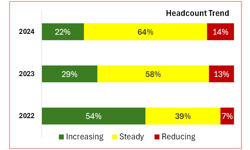You have happy customers, right?
Presumably you know they're happy because they often let you know?
When it comes to the Worldwide Web, your online reputation has never been more influential in terms of encouraging people who read about you online to either become a customer or to run away in the opposite direction (or into the welcoming arms of your competition).
The power of the consumer is stronger than ever with the Internet. Consumers can damage you and your business’ reputation very easily with blogs, review sites, social sites like Facebook and even Twitter. What happens when someone puts your business name into Google? Or Facebook?
If you don’t know, it’s time you found out and discovered the traces of your business that people can see there.
What’s said about you and your business on the web can affect you as well as your company, both positively and negatively.
When it comes to your happy customers actually committing their positive feedback into published pixels, you're going to have to be pro-active.
Blogs, complaint sites, social media networks and search engines have given consumers unprecedented power to use free outlets for distribution of their opinions – and consumers are more than happy to use them! Particularly, it's sad to say, if what they want to say is overwhelmingly negative.
Online reputation management is the process of taking control of what the public reads about your business online by providing strategies to ensure blogs, search engines and social media networks represent commercial opportunities rather than risk.
By far the most powerful, most influential strategy for enhancing online reputation is through 3rd-party endorsement. Real people, real customers providing real endorsements of your business or brand.
So, how do we encourage our happy customers to say nice things about us publicly?
First, let's look at some facts:
comScore asked study participants how much they would be willing to pay for a particular service based on the quality of the service…
The results showed that consumers were willing to pay between 20 percent and 99 percent more for an Excellent (5 star) rating than for a Good (4 star rating), depending on the product category.
The bottom line: 3rd party endorsement of your business, products, brand or services have a dramatic impact on the decision making process of your potential customers.
However, there's a problem…
Satisfied customers don't tend to write online reviews - only customers who were either 'ecstatic' or 'disgusted' tend to contribute to online review sites with unhappy customers 20 times more likely to write a review.
Reviewer rating behaviour is significantly affected by previous ratings. In other words, product reviews not only reflect the customers' experience with the product, but they also affect the ratings of later reviews (a single bad review can prompt others to contribute more bad reviews and vice versa). (Moe/ Trusov 2010)
Readers of online reviews are adept at identifying negative and positive reviews that appear to be written by parties with a vested interest (self reviews/competitor reviews). (Forman, Ghose, Wiesenfeld, 2006)
Stagnant review pages or social media accounts with limited activity leave a negative impression on consumers. (Liu, 2006)
Negative word of mouth online is 51 times more influential in consumer purchasing decisions than positive word of mouth. (Chen, Xie, Jinhong 2006)
So, what do we do?
Satisfied customers don't tend to write online reviews – Be proactive in implementing an internal review gathering process. Request permission from your customers to publish their opinions of your business online. If it's legal in your profession, offer an incentive to your customers to write a testimonial about your business and either grant you explicit permission to publish it or ask them to publish it themselves on social media or review sites such as Google Places, Yelp or any industry specific review sites that are influential in your sector. (Note: In some industries, it is illegal to offer incentives to clients. Do not incentivise people to write only positive reviews, simply encourage them to write their honest feedback.) You could offer rewards such as company discounts, gift vouchers or even coupons to redeem a free cup of coffee at a local Starbucks as a way to say thank you to your customers for taking the time to commit their feedback to the web.
Reviewer rating behaviour is significantly affected by previous ratings. - Take control. Monitor mentions of your business online via free services such as Google Alerts. If something is said, be agile enough to respond (professionally).
Readers of online reviews are adept at identifying negative and positive reviews that appear to be written by parties with a vested interest. - Don't write your own reviews! The public is savvy and self-written reviews are usually very easy to spot. Write your own reviews and the potential for damage could be catastrophic for your online reputation.










